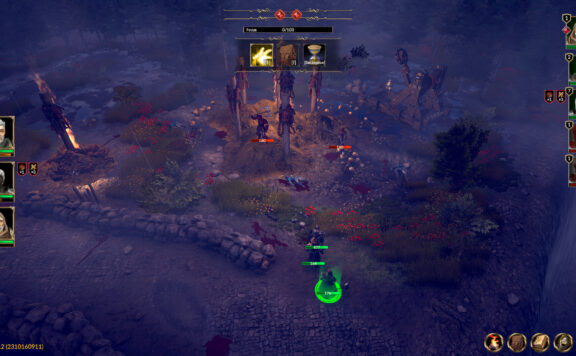Customer service in the gaming industry is not like the typical service we’ve come to expect. As the industry rapidly grows, gamers require a more nuanced approach from customer support reps.
Today’s gaming companies can only be considered leaders if they know how to predict gamers’ needs before they even ask, especially when the game gets heated. Because gamers are passionate and driven enthusiasts who pay a lot of money for your product, your task is to provide them with first-rate customer service.
Player support is arguably the most crucial aspect of the customer experience. Only highly trained game support specialists know how to keep players motivated and engaged in the game. Not providing such support at the crucial moment will not only disappoint gamers but may send them in search of a better experience.
Developers then lose any further revenue from upgrades, expansion packs, and new editions. As these are the main sources of revenue for gaming companies, the loss impacts the bottom line directly. Therefore, customer support agents in the gaming business must comply with the sector-specific rules to excel at this highly competitive but lucrative niche.
Let us share with you the fundamental principles of gaming customer support that will make your agents the most seasoned experts in the field who match the fittest players. Read on to find out all the secrets of great customer service that will keep your customers in the game.
What Is a Game Customer Service?
In the digital age, players expect your support when they face certain problems with your product or service during the game. As a company providing gaming services, your ultimate goal is to get your client back to the game and make a long-term deal that benefits both.
Game customer service is an all-encompassing set of fast and flexible support solutions to significantly improve player experience and help companies take the lead in the gaming market. Game support reps ensure that your clients, aka gamers, receive the help they need timely. Time is a critical differentiating factor in this fast-paced industry.

Players and key service tactics are important, but they aren’t the only factors to keep in mind. Gaming customer support is also about the games, which dictate the main rules of the customer service depending on different types of the games:
- Free-to-play games;
- Premium games;
- MMO (massively multiplayer online games);
- Single-player games;
- PC (personal computer games);
- Mobile games;
- VR/AR games;
- Console video games.
The Basics of Player Support Services: How to Lead by Example
Digital transformation enabled the gaming industry to scale up relatively quickly. However, as the industry grew in size, so did the number of competitors. The world-renowned tech giants are now competing against independent developers.
Becoming a leader in both customer service and the gaming industry at the same time is an arduous task. That’s why companies need to strictly follow these ground rules to achieve long-term customer loyalty and increase player engagement:
- Connect emotionally with your players
Games are a great way to test emotional intelligence. However, players are under a lot of stress due to the competitive nature of the games, which is why even a minor mistake, such as a system bug or ignored message, might disrupt your entire business.
The human touch can work wonders for your customers who are actively engaged in the game and don’t want to waste time-solving the problems on their own (which rarely ends up with success). To match a player’s mindset, your customer service agent has to have some gaming experience and speak the same “gaming” language.
- Leverage different customer service platforms
Your customer base varies according to the different types of games. Game customer service has to follow the same rules and be specifically tailored to your players’ preferences, including service platforms or communication channels.
Case in point, PC game players possess strong technical skills while console game contestants value convenience and easy-to-use platforms. So make sure that your customer service is not the same for each group of gamers, as this approach will most likely fail.
- Develop a team-minded service
As the stats reveal, modern gaming companies don’t have sufficient knowledge about customer support, but we do. This is why we want to focus on teamwork in player support. If your in-house team lacks expertise in supporting players correctly, you can always choose alternative options, like outsourcing or self-service support.

- Provide real-time, 24/7, omnichannel player support
Video game support services need to work fast to make it easier for the players to use the game-specific product or service. However, gaming companies also need to ensure their customers can access support agents any time they want and via any channel they use, including:
- In-game chat support;
- Email support;
- AI chatbots;
- IVR;
- Voice/chat support;
- Social media support and online networking.
This way, game providers maintain continuous communication with their clients and can boost their level of trust in the brand. This level of engagement shows customers that you value them.
Focus on player feedback
Customer feedback has long been known as the main indicator of customer satisfaction and product success. Encourage your players to share their feedback to identify all the gaps for improvement.
Finally, act on the feedback. Gamers expect some bugs in newly developed games. They’re more willing to deal with these with companies acting on their feedback.
Gaming Customer Support Enhances Both Gaming and Business Experiences
In the gaming industry, customer service evolves hand-in-hand with the gaming process. When your players contact your support agents, it marks the beginning of a multi-step journey in which player support becomes integral to the overall gaming experience.
Video gaming market leaders are driven by huge profits. For this reason, support services in the gaming industry should be also thought of as a profit-building strategy. As you can see, it’s a win-win situation for both the players and the business owners.
Here are the most common principles that will help you improve your gaming customer support and reap the benefits for your business:
- Get to know your players by increasing two-way communication.
- Use a personalized approach based on customer segmentation.
- Design your games by addressing specific gamers’ requirements.
- Teach support agents to learn, understand, and match gamers’ mindset.
- Harness technology to provide 24/7, omnichannel customer support.
- Actively encourage feedback from players to improve the gaming experience.
- Recognize gamers’ input in the product development process.
- Make an effort to gather customer feedback to understand gamers’ concerns and the common issues they face during a game.
Game Customer Support Makes a Difference: Finding the Perfect Approach
Perfectly organized and led video game support drives unforgettable experiences for modern gamers. By using players’ feedback, gaming companies can come up with the most effective solution for their business and refine their products to meet gamers’ needs. This is how they create brand loyalty and bring their products to the forefront of the technology-driven market.
The basic philosophy behind gaming customer service might seem overwhelming for companies wishing to start conquering the gaming business. However, they shouldn’t be concerned if they consider these four viable methods before entering the gaming industry:
- Research your target market.
- Find a reliable outsourcing partner (focus on quality and security).
- Use an integrated approach.
- Implement the most optimized solution.

Key Takeaways on Game Customer Service
With such an unprecedented growth of the video game market, companies find it difficult to balance outstanding customer service and cost containment. Thus, only a few gaming firms provide great player support and please their clients with cutting-edge technical solutions.
In gaming customer service, there is no one-size-fits-all strategy. The industry’s diversity requires a unique approach to each player. This guide will help you become the best customer service organization serving the best players in the field.







